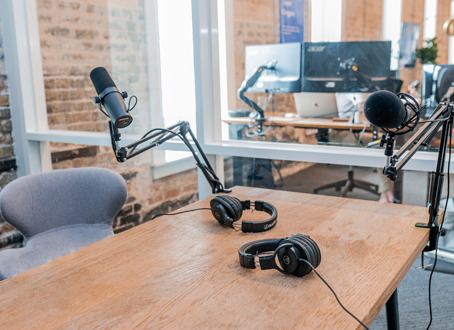This Spotlight is authored by guest writer Caitlin Kelly as part of a special blog series by the Case Foundation featuring Be Fearless stories from the field. Follow along with us as we meet people and learn about organizations that are taking risks, being bold and failing forward in their efforts to create transformative change in the social sector.
Global Press Institute (GPI) is an award-winning, high-impact social venture that uses journalism as a development tool to educate, employ and empower women in the developing world to produce professional news coverage. Using this innovative model, “we employ women journalists in places where opportunities for economic empowerment and literate leadership are very few,” says Cristi Hegranes, founder and executive director of GPI.
This bold organization is no stranger to making big bets and letting urgency conquer fear—and its reporters embrace those same characteristics. GPI now has a staff of 135 reporters, full-time and part-time, from underprivileged, underrepresented communities in 26 developing countries. This cohort of journalists includes members of the untouchable caste in Asia, former sex workers in Africa and indigenous women in Latin America. Many have no professional background in journalism and limited formal education when they join the program. Others possess formal education and work experience, but live in communities where unemployment and dynamic opportunities for women are extremely rare.
In GPI’s 2014 Annual Report, a Congo trainee, Merveille Kavira, revealed, “Before GPI, my job was that I took care of my elder sister’s children and in return she would buy soap for me… GPI will help me to be self-sufficient. I will be independent and I will no longer work taking care of someone’s children. I will be a powerful woman in my society. I will be empowered.”
All of the women use their unique perspectives to provide coverage of issues often overlooked by mainstream media and “disseminate the news they find both locally and globally through GPI’s networks and subscribers,” Hegranes says. Recent coverage by GPI reporters features topics such as: citizens’ right to access government information; human trafficking; and election violence. In some countries with little or no freedom of the press, “the ability to identify stories that no one else is talking about is fearless,” she explains.
It’s not a simple job; working as a female reporter in a developing nation, often within a culture that typically expects women to devote their energies primarily to marriage and motherhood. GPI offers women a daunting array of challenges and opportunities. “We ask our reporters to be fearless every day in bucking social norms and challenging cultural and family norms.”
To help the women navigate the challenges that come with the job, GPI’s in-country reporters all receive intensive training in safety and security. While interviewing their own countrymen and men “gives us extraordinary access” it also leaves them more vulnerable to attack. “It’s very difficult work. They’re not white people in SUVs with tons of equipment,” Hegranes says.
No matter where GPI hires its reporters—now in 26 developing nations and looking to expand in North Africa and the Middle East—there “are always safety concerns.” But that’s part of being fearless: giving women opportunities wherever they need it most, no matter what—not to mention bringing unbiased news of current events to those who need it most. Which might be why Hegranes says northern Nigeria, home to extremist Islamic group Boko Haram—known for targeting government offices, the United Nations, and civilians—“is our next big target spot for Africa.”
Despite the dangers associated with the job, GPI’s retention rate is an impressive 90 percent after nine years. As reporters grow their skills, they often rise within GPI’s ranks to become managers and editors. “Our biggest problem [right now] is being overwhelmed by applicants,” explains Hegranes. “In November 2014, we had four training spots available in the Congo and we received 309 applications.”
GPI, focused on training women to be journalist, is part of a larger global news organization; the Global Press Journal (GPJ) similarly employs training graduates to report. And the stories GPI and GPJ gathers are bought by a wide variety of clients, syndicated by the Global Press News Service to journalism giants like Al Jazeera, PRI and Reuters to curriculum developers, universities, corporations and governments. That revenue proved sufficiently valuable that, in a major shift organizationally, this year Hegranes is spinning off the news service as a for-profit business. “The non-profit income is so necessary to what we do, but it’s slow and it’s risk-averse. We need to be able to generate much more of our own revenue and it will allow us much more flexibility than using restricted funds that won’t allow us to buy a plane ticket or for cameras, for example.”
How does Hegranes and her team make everything work around the globe with a 24/7 news cycle? “In the developing world you have to be nimble, responsive and intuitive and foundations’ pace is just not how we operate. We’ve just got to jump!” she exclaims. She also relies on a seven-member board—“the best we’ve ever had”—as well as a full-time staff of seven, their largest ever. These dedicated individuals help to ensure the success of GPI and its reporters. Hegranes values their willingness to act quickly, unlike the “glacial” pace of large, more conservative groups. “The world changes every second. Who has time for that?”
Together, GPI and its cadre of women reporters have clearly made an impact, at both the policy and personal levels. GPI’s stories have changed laws in Nepal and Rwanda—and 80 percent of its reporters are now the major breadwinners in their family. The work of GPI and its reporters contributes to the development and empowerment of communities, brings greater transparency to countries and changes the way the world views their people and cultures.
Feeling inspired? If you’re ready to begin your own Be Fearless journey start by downloading our free Be Fearless Action Guide and Case Studies.





